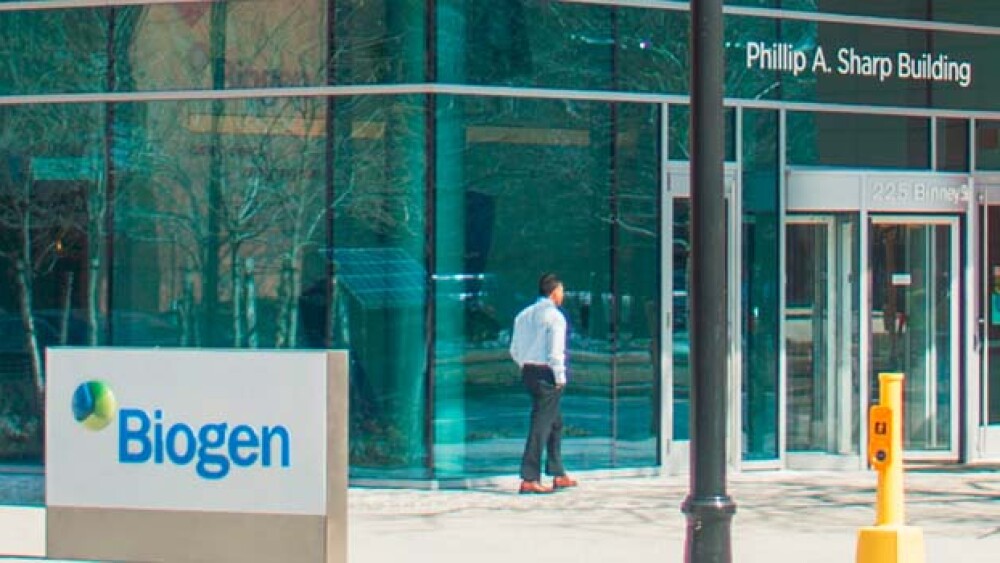ALZ’s researchers continue to see hope in Biogen’s aducanumab.
Alzheimer’s researchers continue to see hope in Biogen’s aducanumab.
The company unveiled data from the long-term extension of its ongoing Phase 1b study of aducanumab at the Clinical Trials on Alzheimer’s Disease event taking place this week in Boston. Data being presented includes results that demonstrate a reduction of amyloid plaque in patients over a two- and three-year period. The analysis presented at the Boston meeting includes data from a set of patients who received titrated dosing of aducanumab for two years and another group who received a fixed-dose for three years. Both groups saw declines in amyloid plaque, Biogen reported.
For the 24 month group, Biogen said Amyloid plaque levels continued to decline in patients who remained on treatment for the full term. In patients treated up to 36 months, amyloid plaque as measured by PET using SUVR, continued to decrease in a dose- and time-dependent manner
The results were built on early data that Biogen released from the Phase Ib trial in December. That early data showed patients receiving the drug showed a drop in Alzheimer’s-related beta-amyloid plaque in the brain, as well as continued to show a slowing of cognitive declines. Aducanumab is a human recombinant monoclonal antibody, targets amyloid plaque and amyloid beta oligomers.
“We now have up to three years of results from the Phase 1b study of aducanumab and during this time period we continued to observe reduction of the biomarker, amyloid plaque,” Biogen’s Chief Medical Officer Alfred Sandrock said in a statement. “The results also suggest there is a benefit on clinical decline for patients in the Phase 1b study, especially at the highest doses of aducanumab. Our Phase 3 studies of aducanumab are ongoing to determine whether it may be a potential treatment for early Alzheimer’s disease.”
The news presented by the company shows that Biogen is on track with its anti-amyloid plaque program – one that is closely watched given the late-stage failure of so many other Alzheimer’s drugs.
While the drug is showing promise in reducing amyloid plaque, Biogen noted that the most serious adverse events involved amyloid-related imaging abnormalities (ARIA), a type of oedema in the brain. Six patients experienced more than one episode of ARIA-E. These recurrent events were consistent with other ARIA events. They were typically asymptomatic, and most patients continued in the study, Biogen said.
The positive data provides a foundation for Biogen’s decision to pay another $200 million to Neurimmune Holding AG, the company from which Biogen licensed the Alzheimer’s drug. By doing so, Biogen increased its profit potential on the drug. The payment to Neurimmune will reduce Biogen’s royalty rates by 15 percent, the company said.
Not only is adunecamab in a Phase Ib, the drug is also part of two Phase III trials. Those trials are designed to evaluate its safety and efficacy in slowing cognitive impairment and the progression of disability in people with early Alzheimer’s disease.
In addition to aducanumab, Biogen also has Elenbecestat, an oral inhibitor of beta secretase in its developmental pipeline. The drug is being developed in partnership with Eisai. By targeting beta secretase, Elenbecestat is being developed to prevent beta-peptide formation from the amyloid precursor protein - APP - and thus subsequently prevents amyloid beta deposits building in the brain.





